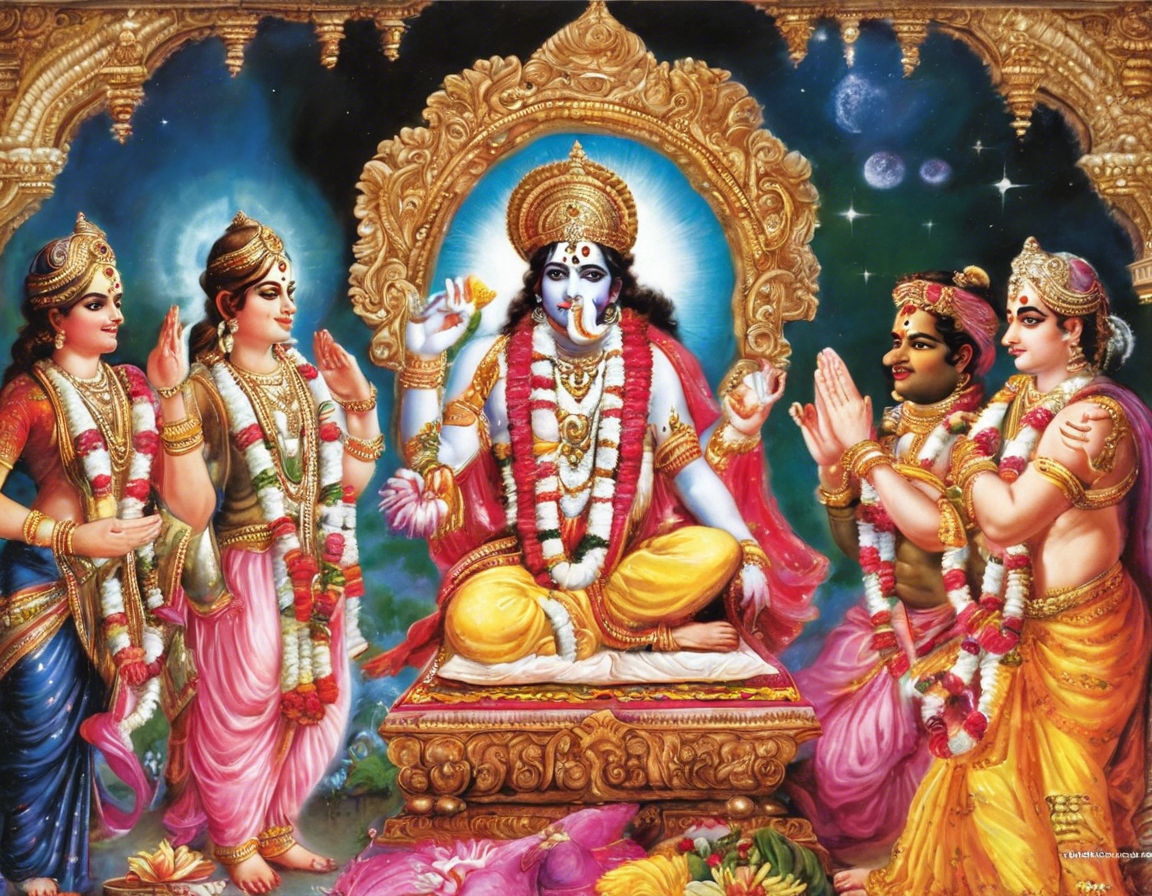Ekadashi holds great significance in Hindu culture and spirituality. This auspicious day occurs twice in a month, marking the 11th day of both the waxing and waning phases of the moon. Devotees fast on this day, abstaining from grains and lentils to seek spiritual growth and well-being. The observance of Ekadashi is not just a dietary practice but a profound spiritual journey that purifies the mind, body, and soul.
The Origins of Ekadashi
Ekadashi has its roots in Hindu mythology. Legend has it that Ekadashi is linked to the time when Devas (celestial beings) and Asuras (demons) churned the ocean to obtain the nectar of immortality. During this process, poison emerged, threatening to destroy the universe. In order to save the world, Lord Vishnu consumed the poison and retired to rest on the 11th day, which came to be known as Ekadashi.
Fasting on Ekadashi
Fasting on Ekadashi is believed to cleanse the body and mind, allowing individuals to focus on spiritual practices and attain inner peace. The fast begins at sunrise on Ekadashi and ends at sunrise the following day. Some devotees choose to fast completely, while others opt for a partial fast, consuming fruits, milk, and nuts.
Benefits of Fasting on Ekadashi:
– Detoxification: Fasting helps in the detoxification of the body, allowing the digestive system to rest and eliminate toxins.
– Spiritual Upliftment: By observing Ekadashi fasts, individuals seek spiritual growth, discipline, and a deeper connection with the divine.
– Self-Discipline: Fasting instills self-discipline and control over desires, promoting a balanced and harmonious lifestyle.
– Karma Cleansing: It is believed that observing Ekadashi fasts helps in seeking forgiveness for past sins and purifying one’s karma.
Rituals and Practices
On Ekadashi, devotees engage in various rituals and practices to deepen their spiritual experience. Some of the common activities include:
– Visiting Temples: Many individuals visit temples dedicated to Lord Vishnu on Ekadashi to offer prayers and seek blessings.
– Meditation and Chanting: Practicing meditation and chanting mantras are integral parts of the spiritual journey on Ekadashi.
– Charity and Service: Offering food, clothes, or donations to the less fortunate is considered auspicious on Ekadashi, promoting selflessness and compassion.
– Reading Scriptures: Reading holy texts and scriptures, especially those related to Lord Vishnu, is believed to bring wisdom and spiritual knowledge.
Significance of Different Ekadashis
There are 24 Ekadashis in a year, each with its own significance and benefits. Some of the prominent Ekadashis and their importance include:
Vaikunta Ekadashi
Vaikunta Ekadashi holds special importance as it marks the opening of the gates of Vaikunta, the abode of Lord Vishnu. Devotees fast and stay awake all night, immersed in prayers and devotion.
Nirjala Ekadashi
Nirjala Ekadashi is considered the most austere form of fasting, where devotees abstain from food and water for the entire day and night. It is believed to bestow the benefits of all other Ekadashis.
Pradosh Ekadashi
Pradosh Ekadashi is observed during the Pradosh period, which is the twilight time when day transitions into night. This Ekadashi is believed to remove obstacles and fulfill desires.
Myths and Beliefs
Ekadashi is surrounded by several myths and beliefs that add to its mystical aura. Some popular myths include:
– Liberation from Curses: It is believed that observing Ekadashi fasts can free individuals from curses and negative karma.
– Fulfillment of Desires: Devotees believe that sincere prayers and fasting on Ekadashi can help in fulfilling long-cherished desires.
– Health and Prosperity: Regular observance of Ekadashi fasts is thought to bring good health, prosperity, and overall well-being.
FAQs About Ekadashi
1. What foods are allowed during Ekadashi fasting?
During Ekadashi fasting, grains and lentils are avoided. Fruits, vegetables, dairy products, nuts, and specific fasting-friendly items like buckwheat are typically consumed.
2. Can pregnant women and individuals with health conditions observe Ekadashi fasts?
Pregnant women, individuals with health conditions, or those unable to fast for various reasons can seek guidance from a spiritual advisor or modify the fast to suit their health needs.
3. Is it necessary to stay awake all night during Vaikunta Ekadashi?
While staying awake all night is a common practice during Vaikunta Ekadashi, individuals who find it challenging can engage in prayers and meditation before resting.
4. Can children participate in Ekadashi fasting?
Children can participate in Ekadashi fasting under parental guidance. It is advisable to introduce them gradually to the practice and ensure it does not affect their health and well-being.
5. How can one enhance the spiritual experience of Ekadashi?
To enhance the spiritual experience of Ekadashi, devotees can engage in acts of charity, spend time in reflection and prayer, participate in community services, and maintain a pure and positive mindset.
Ekadashi is not just a ritual but a transformative spiritual journey that offers devotees an opportunity for self-reflection, growth, and divine connection. Through fasting, prayer, and acts of devotion, individuals embark on a path of purification and enlightenment, seeking inner harmony and spiritual fulfillment. Embracing the essence of Ekadashi can lead to a deeper understanding of oneself and the eternal truths of life, nurturing the soul and fostering spiritual evolution.
